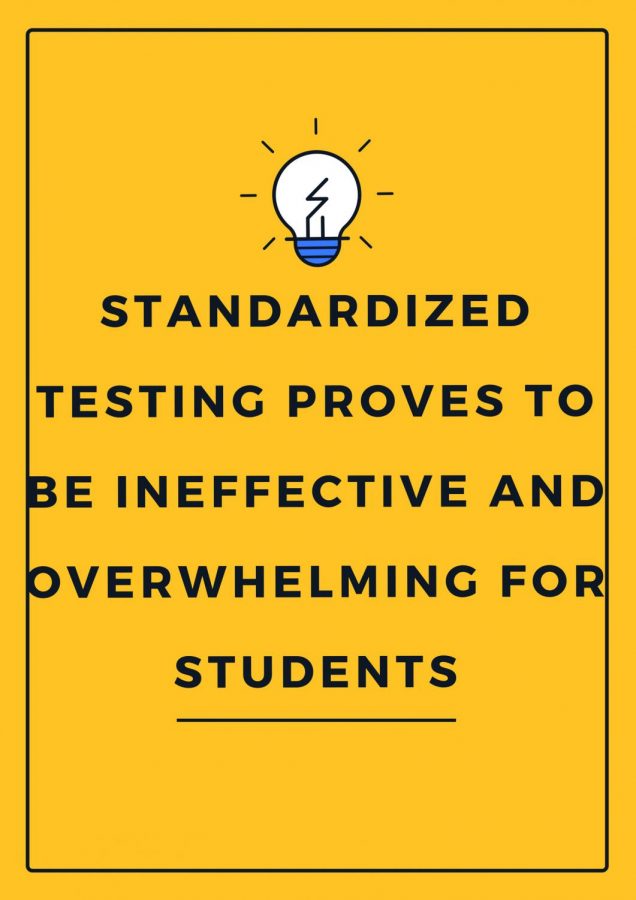Standardized Testing Proves To Be Ineffective And Overwhelming For Students
May 14, 2018
The number of tests that grade school children have had to take in the last couple of years has increased exponentially. A study was conducted by the Massachusetts Institute of Technology, Harvard University, and Brown University. They concluded that even though schools in Massachusetts were able to raise the grades of students on the state tests, the improvements were not associated with their “fluid intelligence” meaning their cognitive skills.
New studies prove that American students academic scores are way lower than many other countries. The study’s senior author, John Gabrieli, said that those “fluid intelligence” skills aren’t gained through the current way that schools test their students.
“It doesn’t seem like you get these skills for free in the way that you might hope, just by doing a lot of studying and being a good student,” Gabrieli said. “Just as you would expect, there’s a real cost to not living in a supportive environment. We can see it not only in test scores, in educational attainment, but within the brains of these children.”
The test scores also show that there is a major difference between a high income household student versus a low income household student. Associate professor of education at the Harvard Graduate School of Education, Martin West, confirms that the test grades have been getting further apart after a recent study.
“The gap in student achievement, as measured by test scores between low-income and high-income students, is a pervasive and longstanding phenomenon in American education, and indeed in education systems around the world,” West said. “There’s a lot of interest among educators and policymakers in trying to understand the sources of those achievement gaps, but even more interest in possible strategies to address them.”
School Boards Association and the state Association of School Psychologists found that new common core testing has made students very stressed more than they were before. The new study shows that six in 10 school psychologists said the Common Core learning standards has raised students’ anxiety. The students’ stress and anxiety of the tests are explained by Nicky Hayes.
“A student’s reaction, for example, to a teacher’s reminder that a final exam will be presented next week, may induce stress that triggers the sympathetic division of the autonomic nervous and endocrine systems,” Hayes said. “Common responses to ‘exam stress’ include disturbed sleep patterns, tiredness, worry, irregular eating habits, increased infections, and inability to concentrate.”
The recent reports about standardized testing have caught the attention of Diane Ravitch, author of many popular and eye opening books.
“Sometimes, the most brilliant and intelligent minds do not shine in standardized tests because they do not have standardized minds,” Diane Ravitch said, author of The Death and Life of the Great American School System: How Testing and Choice Are Undermining Education.
In 2002, former President George W. Bush, signed the No Child Left Behind Act (NCLB) stating that schools will be held accountable for the students’ performances. It passed with a landslide vote in Congress in 2001, and continues to transpire to this day.


